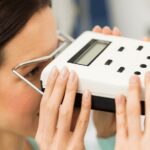Egg Retrieval and ICSI: Here’s What You Must Know
ICSI is a critical part of IVF process. The embryologist injects a single healthy sperm into the egg cytoplasm for fertilization. It is extremely beneficial for couples with male factor issue which is estimated to be associated with 30% of infertility cases, according to an article by the National Center for Biotechnology Information.
ICSI is perceived to be an effective treatment when the semen characteristics are below the standard health parameter. It uses multiple micromanipulation tools and equipment to pick the best sperm. This results in fertilization in about 75-85% eggs. The first step of this assisted reproductive technology is oocyte retrieval. The collection is typically performed 34-36 hours after taking the 18mm hCG injection.
Ovarian Stimulation
Follicle stimulating hormones (FSH) and luteinizing hormone (LH) are injected in the stimulation phase of the ICSI procedure. The progress of your cycle is tracked through regular blood tests and ultrasounds which also help to monitor egg production and determine when to retrieve, according to an article by Healthline. Once the eggs are matured for fertilization and ready to be released from the ovary; the next step is retrieval.
How to Prepare your Body for Egg Retrieval
Here are a few dos and don’ts which are important before your appointment:
- Hospital gowns are offered during the process. However, consider something loose, soft and comfortable to wear back home.
- Try to avoid deodorants, perfumes, makeup, nail polish and contact lenses.
- Refrain from eating and drinking at least 8 hours before egg retrieval. This is because the process is done under complete anesthesia.
However, do carry light snacks and beverages. You can consume them once the procedure is done. Further, rest out if possible before leaving the hospital. This is because you are likely to feel a little bloated,breast tenderness, mild cramps and discharge.
The Process of Egg Retrieval
This is performed by a surgical process known as ‘follicular aspiration’ which is repeated for each ovary, according to an article by Medical News Today. It is also known as ‘transvaginal aspiration’ and is performed with a mild sedative. This will be administered through an IV by an anesthetist. Make sure the procedure is performed at the best infertility hospital in Hyderabad for optimal results.
Have a detailed look:
Step 1: The vagina is washed thoroughly with a gentle sterile solution.
Step 2: The doctor will use an ultrasound scan to assist with the process.
Step 3: A needle is placed on the fluids and ovary.
Step 4: The eggs are collected in a test tube from the follicles.
Step 5: The retrieved samples are sent to the IVF lab. Here they are counted and evaluated.
The entire procedure will take 20-30 minutes. Make sure you do not drive or commute back home alone. This is because you need to ease the body and ensure minimum stress.
Precautions to Take Post Egg Retrieval
Egg retrieval is an invasive process. Therefore, a significant amount of rest is required for the body for easy and quick recovery.
Below are a few other ways to be careful:
- Avoid heavy exercises like weight lifting. This is crucial since your ovaries are still enlarged and tender.
- Try to stay away from excess caffeine. Alcohol is a big no-no at this point.
- Avoid extreme temperature till the pregnancy test. For example, no hot showers or saunas during this period. However, you can use heating pads in case of muscle cramps.
- Do not indulge in penetrative sex and allow the vagina to heal. It is best to avoid douches and vaginal creams too.
Complications from egg retrieval in an ICSI procedure are rare. Further, the top embryologist works with the cells in advanced labs under a controlled environment. This can ensure the best possible result and enhance the chance of healthy embryo development.






